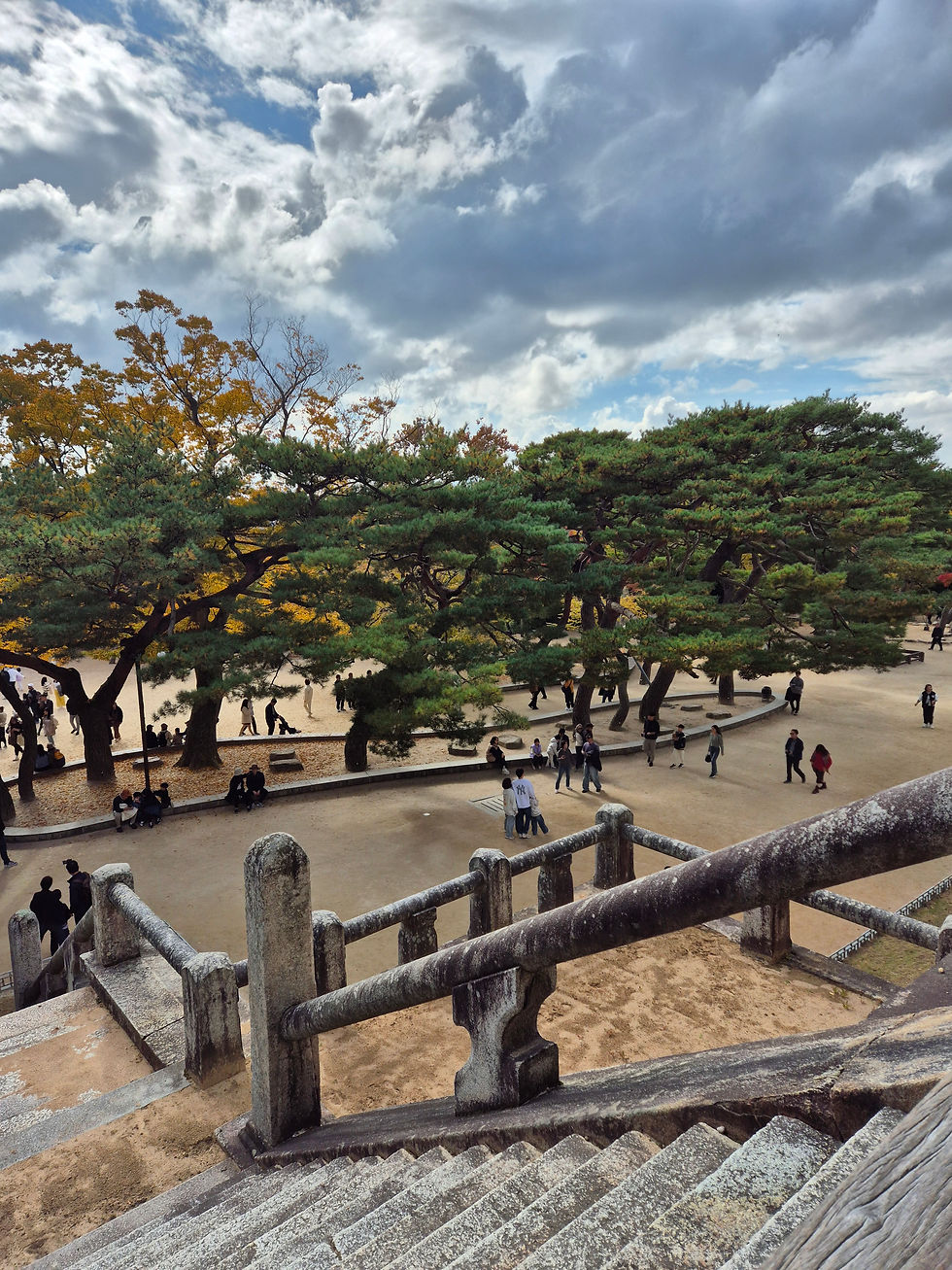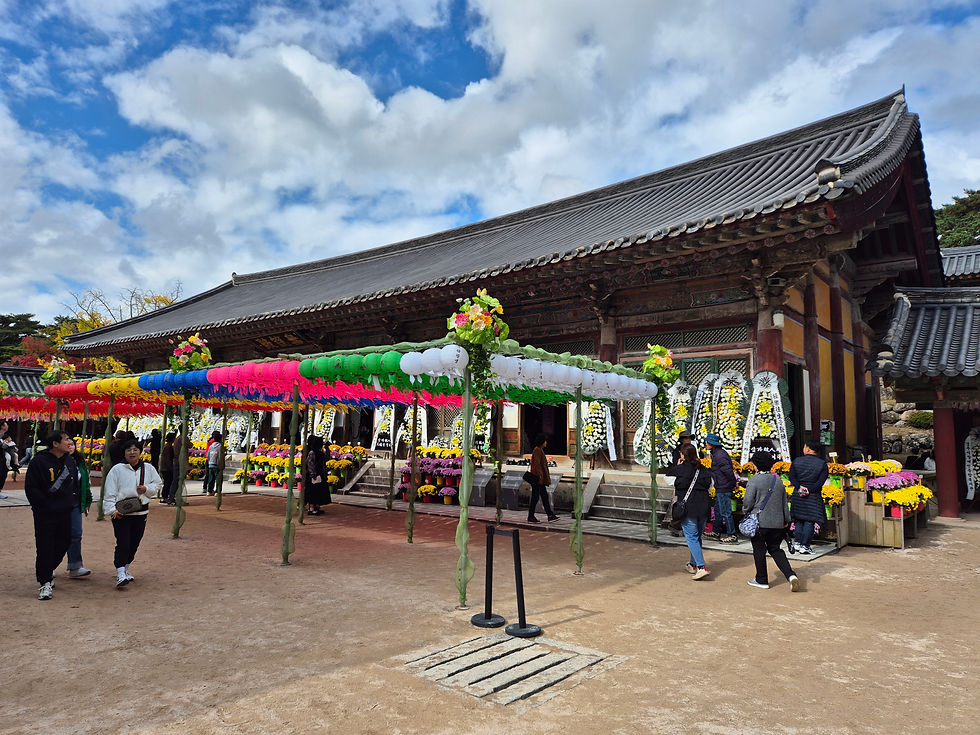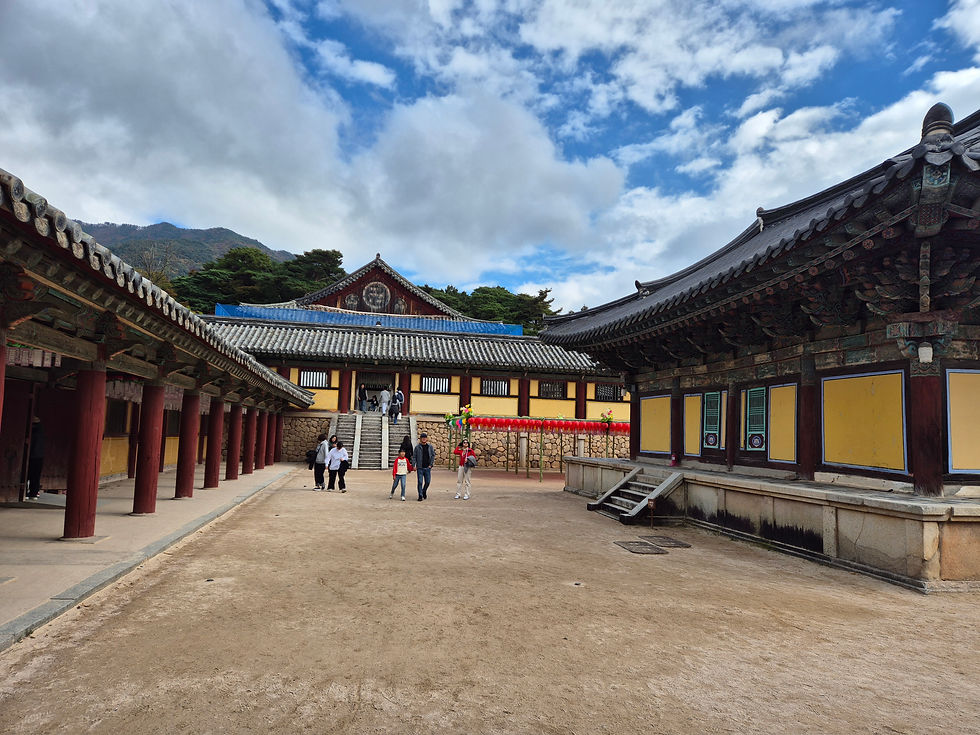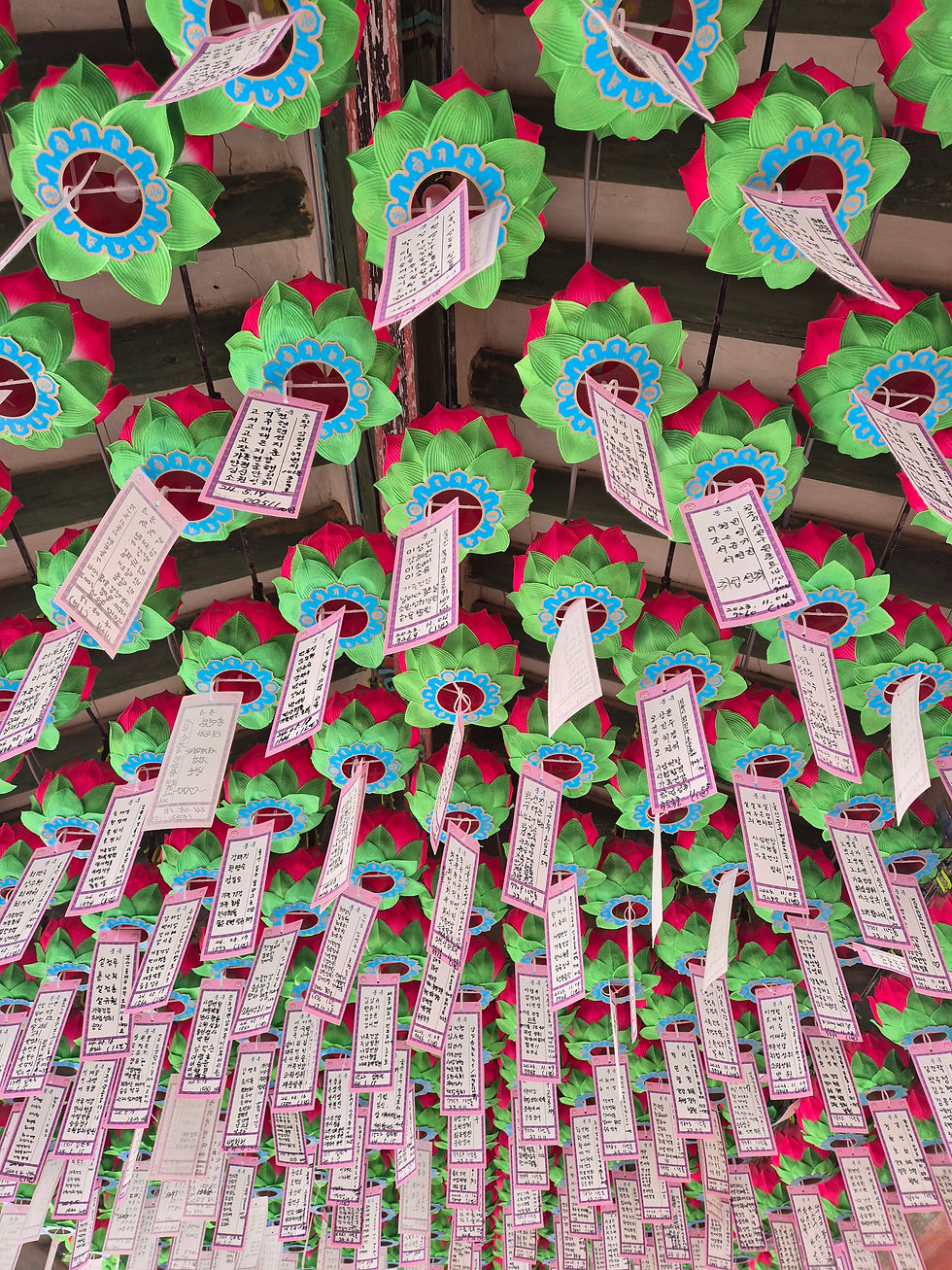[Series] 5. The Magic of Bulguksa
- mellinegalani
- Jun 30, 2025
- 3 min read
There is no argument that Gyeongju, the former capital of the ancient kingdom of Silla, has become one of the most popular tourist destinations in South Korea.Home to not just one but several UNESCO World Heritage Sites and 31 national treasures, it is bound to be an unforgettable visit.Royal tombs, stone pagodas, temples, old palaces, Seokguram Grotto or the oldest astronomical observatory in Asia, to name some of its main attractions, make it a must-see destination for tourists and locals alike.What better way to learn about a country's history than to experience it first-hand.
This is the last article from the series about my favorite temples in Korea that have a special meaning to me.
My first favorite temple is Bulguksa (불국사).It was one of many "firsts" that I experienced on my maiden voyage to Korea.It was love at first sight.It also became the place where I experienced my first meditation and, consequently, where the vision about my future life in Korea was revealed to me;and to this day it is my number one favorite temple in Korea.I usually visit it every year and feel the same joy every time.



Originally built in 528 during the Silla Dynasty, Bulguksa was later rebuilt by Kim Dae-seong (700–774), a chief minister in the Silla Kingdom, in the year 751. Unfortunately, the temple caught fire during the Imjin War (1592–1598).After this time, the temple suffered further damage and was often the target of robbers.Restorations were made over the centuries, often based on ancient descriptions, but the complex is now much smaller than the original.
The temple is accepted as the quintessence of Buddhist architecture. With colorful tiles decorating the underside of the roof and large statues of the Four Heavenly Kings at the entrance, it is truly a sight to behold. Along the way, you will pass by a beautiful pond, and just outside the temple, you will be greeted by one of the most beautiful facades of any temple in Korea. The temple was recognized as a UNESCO World Heritage Site in 1995 and remains active today, with monks chanting and performing Buddhist rituals in every hall. On top of its rich history, Bulguksa also encompasses seven of South Korea's national treasures.

Among them the three-story stone pagodas named Dabotap Pagoda and Seokgatap Pagoda are also the two most renowned pagodas in Korea. They have the same height and stand facing each other, one in the east and the other in the west. Beautiful in any season, this temple should be on the bucket list of any traveler to South Korea, but be aware that it might be crowded even on cold, rainy days because its fame goes beyond the country's borders.
The almost two thousand years history of Buddhism in Korea will give you a quiet refuge in which to meditate or rediscover peace of mind through these tranquil, spiritual temples, whether you are a traveler, a long-term resident, a local or a tourist.





Comments